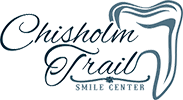An important part of preventive care is having a good oral hygiene routine at home. A lot of people choose to use a mouthwash or rinse to ensure their breath smells fresh and clean, and don’t pay attention to the ingredients. There’s nothing wrong with that. There are many different products on the market to choose from, however, so it’s worth a look at what’s inside all those rinses. Some active ingredients are better for specific oral health goals. If you understand those ingredients, you can choose the best rinse for your needs. Almost all mouthwashes are a great addition to your daily oral health regimen, but using a product that targets a specific goal—and using it the right way—can make a big difference.
Do you need a Bray dentist? Dr. Matthew Bridges serves the Duncan, Velma, and Bray, OK area and can help keep your family’s smiles healthy. Call us at (580) 255-4880 to make an appointment.
Fluoride Rinses
Fluoride not only helps neutralize bacteria, but it also makes tooth enamel stronger. Most dentists agree that exposure to fluoride toothpaste twice a day through brushing is adequate for strengthening the teeth. However, if you feel you are especially prone to getting cavities, it might not hurt to add a fluoride rinse to your routine. Not only will it make your teeth stronger, but it will help reduce plaque build-up, which leads to cavities. This can be helpful for children as well as adults.
If you do use a fluoride rinse, make sure you are using it correctly. A fluoride-containing rinse should be used after you brush the teeth, and you should not rinse with water afterward. In fact, you should watch the clock after using a fluoride rinse—to make sure you consume no food or beverages for at least 30 minutes. This lets the fluoride sit on the teeth longer and do its good work, undisturbed.
Antiseptic Rinses
If you’ve had problems with gingivitis or signs of gum disease, you may want to seek out an antiseptic rinse to help keep mouth bacteria in check. When swished vigorously, a rinse is capable of reaching spaces in the gingival tissues that brushing and flossing may miss.
A mouthwash that contains alcohol may sting and burn, but it does a pretty good job of killing bacteria and preventing the build-up of plaque. The most popular “strong” mouthwashes on the market contain a list of essential oils (menthol, thymol, eucalyptus, etc.) held together in an alcoholic base. There is some concern over alcohol-containing mouthwashes making you more susceptible to oral cancer. Alcohol irritates the soft tissues of the mouth, and irritation is the cause of oral cancer. However, most dentists feel that risk is pretty low and other risk factors (smoking, heavy drinking) are far more significant.
If you want to avoid the burn, look for a mouthwash with chlorhexidine, cetylpyridinium chloride (CPC), or even triclosan. These mouthwashes may be labeled as antibacterial, antiseptic, or use other language to indicate their germ-fighting abilities.
Sensitive Mouth or Dry Mouth
If you suffer from dry mouth, an alcohol-containing rinse can make the situation worse, since alcohol dries out soft tissues. There are a number of “gentler” mouthwashes available for dry/sensitive mouths. The whole Biotene line caters to dry mouth, but other labels produce rinses that can protect and sooth a dry or sensitive mouth. Many of these products contain xylitol, which is an excellent ingredient to have in your oral care regimen. Xylitol is a form of natural sugar that not only doesn’t harm the teeth, but actually makes them more resistant to bacteria.
What’s in Your Rinse?
The bottom line is that there are many oral health rinses to choose from, so it pays to notice the ingredients and know how they affect your mouth environment. If you want a bacteria-fighting mouthwash, you have options to choose from (other than the kind that burns your mouth)!
Do you want to learn more about your family’s oral care products? Visit Chisholm Trail Smile Center! Bray dentist Dr. Matthew Bridges and his hygiene staff are an excellent source of information. Call us at (580) 255-4880 to make an appointment.







